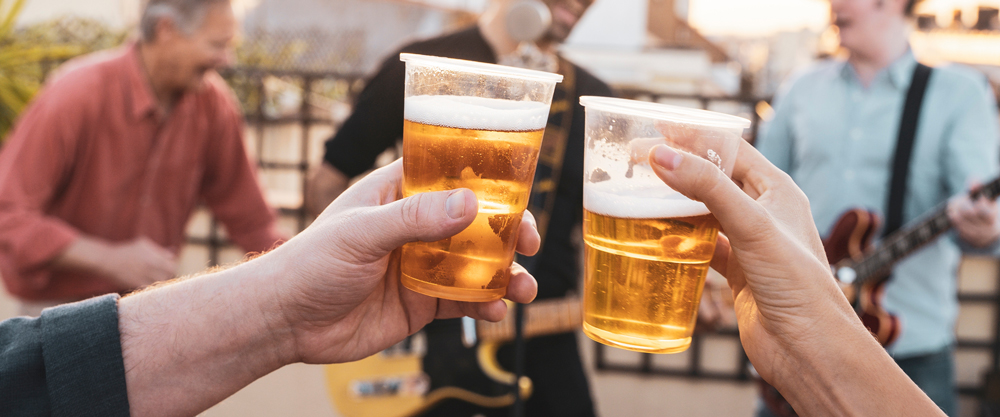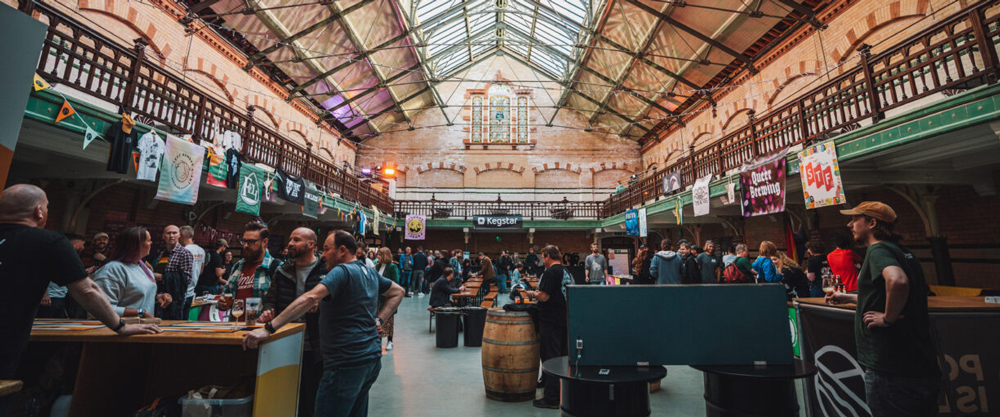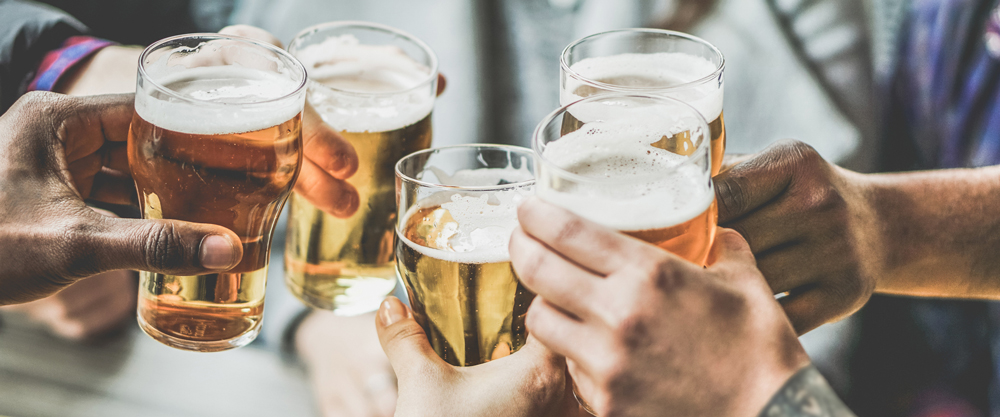The announcement came out of nowhere. There we were, sitting at our desks, or perhaps idly scrolling away on our phones while enjoying a nice sandwich, when the news broke without warning. The Independent Manchester Beer Convention – lovingly referred to as Indyman by locals – told us it would not be hosting a beer festival in 2024.

I can understand if you need to take a moment before reading on. If you’re standing, can I please ask that you sit down, take a few deep breaths. It’s tough news to take, I know. Honestly, I think I’m still in shock.
As a beer festival, Indyman was trailblazing. Yes, beer festivals existed before it came along, wonderful events that deserve celebrating in their own right. This one, however, captured raw lightning in a bottle as beer culture in the UK experienced a generational shift, one that would welcome an entirely new wave of drinkers into the warm embrace of good beer.
The first Indyman took place in 2012, and although I didn’t attend I’m reliably told that, compared to later events, it was a slightly more toned down affair than the vibrant beer party it would eventually evolve into. Although there was an organised debate on the future of craft beer that included none other than BrewDog’s James Watt and local CAMRA stalwart, Peter Alexander that I’m disappointed not to have been present for.
I attended my first Indyman the following year and it filled me with such joy that I feel as though it sustained me for weeks afterwards. The beers and the camaraderie were one thing, but the venue – the stunning Victoria Baths on Hathersage Road – was the icing on the cake; a mishmash of rooms, nooks, corridors and crannies, clad in beautiful, early Edwardian-era architecture and practically dripping with vibe. In fact the Turkish Baths in the back were literally dripping with the sweat of revellers, partying late into the evening sessions. I met some of my closest friends at this festival, and for that I will always be thankful.
But there is no Indyman this year. No chance to try wonderful beers from some of the UK’s and the world’s greatest producers. No chance to meet future friends for life. To say I’m gutted is an understatement. But it also raises a bigger question. If a festival as wonderful as Indyman is unable to sustain itself after 12 years in business, what future do beer festivals have at all?
Indyman is not the only major beer festival to have been cancelled this year. Thornbridge’s Peakender is one example, while another is CAMRA’s flagship event the Great British Beer Festival, or GBBF for short. First officially held at North London’s Alexandra Palace in 1977, it is regarded by many as perhaps the most significant annual beer event in the country. (It’s worth noting for history’s sake that a forerunner to GBBF took place in Covent Garden in 1975.)
Over the years it has moved around a bit, with Birmingham, Brighton and Leeds all playing host to the event at some stage. Since 1991, however, it has remained in London, and since 2012 it has taken place at the Kensington Olympia (with the exception of 2020 and 2021 due to the Covid-19 pandemic.) On announcement that there would be no event in 2024, organisers stated that there were issues with the venue and were not able to find a suitable replacement in time. I consider this to be a great disappointment. This internationally recognised, flagship beer event organised by the UKs largest consumer organisation is a vital campaigning tool, and a crucial way to engage with beer drinkers beyond its most hardcore fandom. I hope that it can find a new venue and return in 2025, perhaps looking at cities beyond London as an alternative.

While Indyman didn’t give as much detail as CAMRA for why it has decided not to run their event, I feel neither of them really got to the nub of why I feel it’s so difficult to run such an event at present. The answer, for me anyway, is an obvious one: cost.
It’s not easy to organise a beer festival. In 2017 and 2018 I ran a coffee and beer festival in London for US beer magazine Good Beer Hunting called Uppers and Downers. While the first instance was for just 100 people, it was a sell out, and lots of fun. Next year I tried to organise a two session event, with 500 tickets available for each of them. Unfortunately, we never quite saw the numbers we wanted, and in the end decided to host a single all-day session for 500 people. The event itself felt like a success, but I was a husk of a man by the end of it (I don’t recommend spending eight hours sampling beer and coffee either). I learned the hard way how much effort is required to put these things together, and run them well.
We did break even, so it wasn’t a total loss. But this was based on 2018 costs, and we paid for all of our beer, plus used a mixture of volunteers and brewery-employed staff to keep costs down. I did a quick napkin calculation to figure out what it might cost to run a similar event in 2024, and it became apparent that with the pressures caused by inflation and the cost of living crisis that it would cost around three times as much to run.
If you’ve spoken to a brewery at a beer festival that’s taken place post-pandemic, they may well have told you that simply by being at a beer festival they are losing money. Some customers will probably also complain and tell you tickets are too expensive, and the beer available is also priced too high. Festivals often come at a premium compared to a typical pub visit, but that’s because they work best when they are exactly that – a celebration, a genuine party experience that you can’t easily replicate, even in a large pub or bar. But with the quality of beer offering from venue to venue in most major UK cities now being so high, the bar to organise a great festival is now even higher, and so too is the cost.
There are some successful, large-scale festivals still running in 2024. We Are Beer’s multi-city events that began in 2013 with the London Craft Beer Festival (no doubt inspired by the success of Indyman the year before) has grown to include numerous similar events around the country. But they’ll often have big name music acts, such as Goldie, who performed at the Manchester Craft Beer Festival in 2022. And they’ll pull the stops out by ordering in some of the most exciting beer from around the world. Tickets are expensive – standard entry to this years Manchester event is £62 including booking fee – but this includes all of your beer, and a vibrant, celebratory atmosphere. It’s still a big ask though, especially when you can have several great beers and a bite to eat elsewhere in town for roughly the same amount of money, or less.
This demonstrates the massive problem festivals have at present. People have less disposable income at the moment, and so unless the experience festivals offer is truly exceptional, they are going to fall flat. This was felt keenly by the organisers of the International Beer and Cider Festival, which took place in Manchester in late March. Tickets started at £20 for entry, for £40 for one that included five tokens. Despite what felt from my perspective like a decent amount of promotion, the sessions were poorly attended, and without enough people to create a proper party atmosphere, it meant the experience wasn’t what some attendees were expecting. Organising a large-scale beer festival is definitely not as easy as those with years of experience make it look.

Despite the lack of an Indyman of GBBF taking place this year, however, there’s still plenty of events to look forward to – those organised by We Are Beer are just one example. Another is FyneFest, organised by Fyne Ales – a full weekend event featuring live music, food and plenty of late night revelry. Something else I’ve enjoyed over the past few years is a good old regional CAMRA festival. Typically organised by a local branch, these can be a great knees up, and a chance to enjoy some good local ale. I was definitely cynical about these events when I was younger, but what can I say, I’ve mellowed. In fact, I’m even volunteering to help out at my local CAMRA festival in Stockport this summer.
While the future for large scale, experience based beer events is not looking great, largely due to the costs of putting such an event on, I feel there is potential in smaller, grassroots events. People still want the offer of great days out where they can have a good time with friends and enjoy a few interesting beers, but it has to be at a price point that works for them, as much as it does the breweries supplying the beers.
We may be coming to the end of the era of the large-scale beer festival – or at the very least, a hiatus – but I consider there is great opportunity to be had in local, community driven events. And if I’m wrong about that, you can tell me if you see me at Indyman or GBBF next year.
— Matthew Curtis